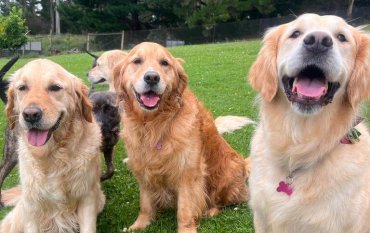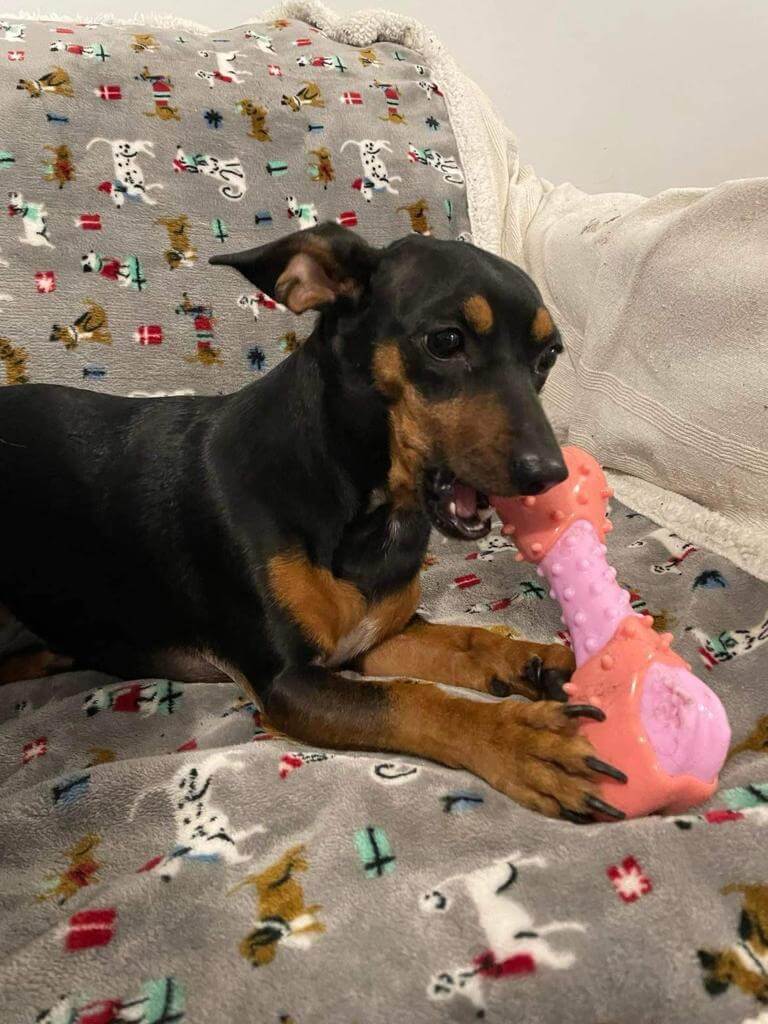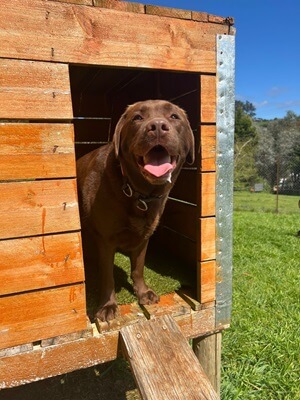Destructive behaviour in pets, like chewing, digging and barking, can be distressing and costly. Preventing and managing these activities requires a combination of training, supervision, and environmental management. Some things to help address and prevent destructive behaviour in dogs include:
Prevention:
Provide Adequate Exercise: Many destructive behaviours stem from excess energy. Ensure your dog gets regular exercise through walks, playtime, and mental stimulation. Consider dog daycare for the days that you cannot provide activity.
Proper Training: Basic obedience training is essential. Teach commands like “sit,” “stay,” and “leave it” to establish control and communication with your dog.
Socialisation: Expose your dog to various environments, people, and other animals – the mental stimulation aids in reducing anxiety-based destructive behaviours.
Interactive Toys: Offer toys that provide mental stimulation and occupy your dog’s time. Puzzle toys or toys with treats inside can be especially beneficial.
Safe Confinement: Train your pup to feel safe in a crate from a young age, and make sure the crate is associated with positive experiences. This way you can use crates or baby gates to confine your dog to a safe area when you’re not able to supervise.
Establish Routine: Dogs thrive on routine. Establish a consistent daily schedule for feeding, walks, playtime, and bathroom breaks.
Management:
Supervise Your Dog: Interact with your dog when they are indoors, and correct undesirable behaviour immediately. Redirect their attention to an appropriate activity.
Positive Reinforcement: Reinforce good behaviour with positive rewards like treats, praise, or play. Any attention-seeking behavior like barking or whining should be ignored.
Deterrents: Use safe products, such as bitter sprays, to discourage chewing on furniture or other items. These can be purchased at vets or pet stores.
Professional Training Classes: Consider enrolling your dog in obedience classes or seeking the help of a professional trainer, especially if the behaviour is severe.
Consult a Veterinarian: If destructive behaviour is sudden or extreme, consult with a veterinarian to rule out any underlying medical issues.
Environmental Management:
Dog-Proof Your Home: Remove items that might tempt your dog to chew or destroy. Keep valuable or dangerous items out of reach.
Secure the Environment: Make sure your yard is secure to prevent escape, and injury from attempted escape.
Provide a Safe Space: Create a comfortable, designated space for your dog with their bed, toys, and water. Consider including interactive toys that will occupy time, provide mental stimulation and burn energy.
Most importantly, remember that consistency and patience are key when addressing destructive behaviour in dogs. If you find that the issue persists or worsens, consider consulting with a professional dog trainer or behaviourist for personalised advice.




